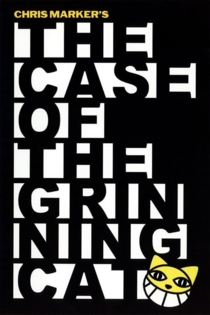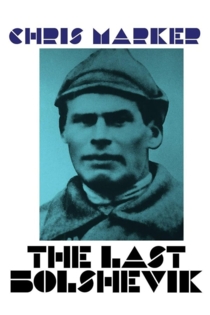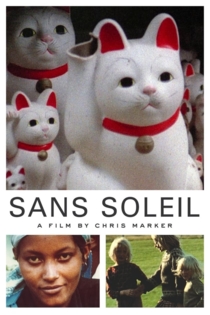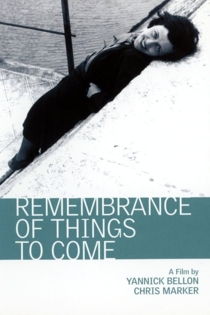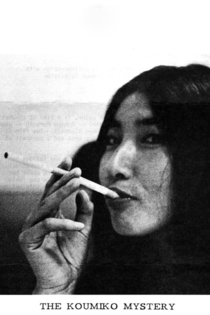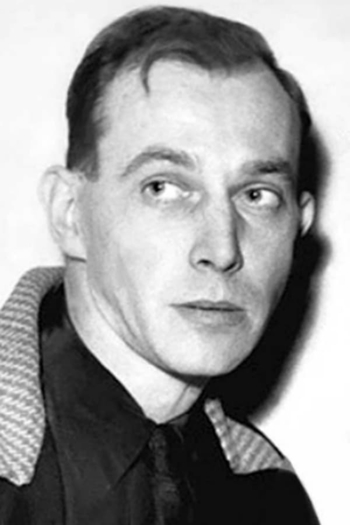
Chris Marker
1921 - 2012He began his work as part of the French Rive gauche group, parallel but different from the nouvelle vague, with which he would later share themes and works. He is credited with creating the subjective documentary and is considered a pioneer of collective cinema in France. His cinematographic work is known for its poetic, sometimes ethereal, and video-art-like expression. He dedicated himself, during sixty years of work, to observing, with meticulous curiosity, with caustic and often amusing irony, even with anger, the vicissitudes of world history and also of the individual (memory, art, wars, politics, culture, nature, etc), all this while experimenting with various methods of image manipulation and montage.
He is also known for the ignorance of his person. For years, hardly anyone knew what Chris Marker looked like, he didn't like being photographed, so there were no photos of him. It amused him to offer contradictory accounts of his life in the few written interviews he gave. The closest you can get to Marker's intimate life is in his film career. Philippe Dubois once said: "Chris Marker is, in a way, the most celebrated of the unknown filmmakers". "Rather than a Man Without Qualities, he is a Man Without Biography," says his official website: chrismarker.org.
He used many pseudonyms too, some are Hayao Yamaneko, Jacopo Berenzini, Kosinki, Michel Krasna, Sandor Krasna, Guillaume-en-Égypte (his avatar) & the best known Chris Marker.
Some of his most important works are La Jetée (1962), Sans Soleil (1983), Far From Vietnam (1967), A Grin Without a Cat (1977), Level Five (1997), A.K. (1985) & One Day In the Life of Andrei Arsenevitch (1999). He also dabbled in CD-ROMs with Immemory (1997), has a website called Gorgomancy, a Youtube channel called Kosinki & created a whole world dedicated to his interests, life and works in the virtual world game: Second Life.
La Jetée
Chris Marker
Davos Hanich, Hélène Chatelain
A man is sent back and forth and in and out of time in an experiment that attempts to unravel the fate and the solution to the problems of a post-apocalyptic world during the aftermath of WW3. The experiment results in him getting caught up in a perpetual reminiscence of past events that are recreated on an airport’s viewing pier.
La Jetée
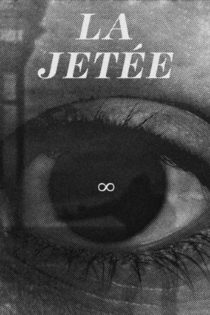
Le fond de l'air est rouge
Chris Marker
Laurence Guvillier, Davos Hanich
French essay film focusing on global political turmoil in the 1960s and '70s, particularly the rise of the New Left in France and the development of socialist movements in Latin America.
A Grin Without a Cat
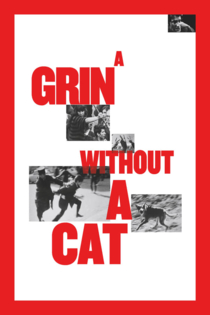
Cinéma, de notre temps: Une journée d'Andrei Arsenevitch
Chris Marker
Andrei Tarkovsky, Marina Vlady
A documentary about the Russian filmmaker Andrei Tarkovsky. The film was an episode of the French documentary film series Filmmakers of our time. The title of the film is a play on the title of Solzhenitsyn's novella One Day in the Life of Ivan Denisovich.
One Day in the Life of Andrei Arsenevich
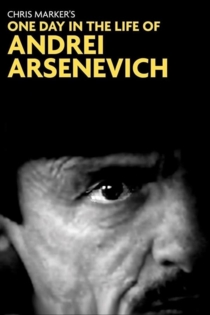
Le Joli Mai
Chris Marker, Pierre Lhomme
Yves Montand, Chris Marker
Candid interviews of ordinary people on the meaning of happiness, an often amorphous and inarticulable notion that evokes more basic and fundamentally egalitarian ideals of self-betterment, prosperity, tolerance, economic opportunity, and freedom.
The Lovely Month of May
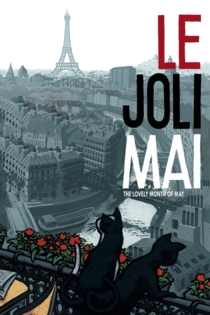
Si j'avais quatre dromadaires
Chris Marker
Pierre Vaneck, Nicolas Youmatoff
Composed entirely of still photographs shot by Marker himself over the course of his restless travel through twenty-six countries, If I Had Four Dromedaries stages a probing, at times agitated, search for the meanings of the photographic image, in the form of an extended voiceover conversation and debate between the "amateur photographer" credited with the images and two of his colleagues. Anticipating later writings by Roland Barthes and Susan Sontag (who professed her admiration for the film) If I Had Four Dromedaries reveals Marker's instinctual understanding of the secret rapport between still and moving image.
If I Had Four Dromedaries
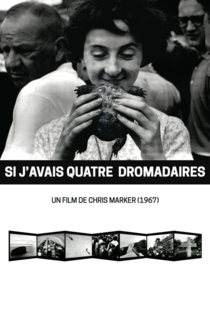
La bataille des dix millions
Chris Marker
Fidel Castro, Georges Kiejman
Documentary about economic development in Cuba, particularly the effort to boost output of sugar cane. This film is made from a compilation of newsreel footage from the Cuban film institute and from Santiago Alvarez's film Despegue a las 18.00 (Departure 18:00).
Cuba: Battle of the 10,000,000
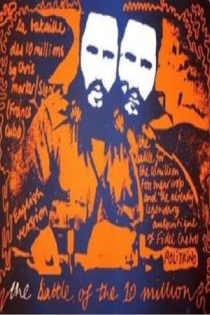
Kashima Paradise
Bénie Deswarte, Yann Le Masson
Chris Marker
This 1973 French documentary explores the conflict between modern values and material comforts in Japan and the more traditional obligations (giri) and culture which are still the real backbone of the society. Among the topics touched on are the Osaka Expo, battles against pollution, and Japanese leftist movements.
Kashima Paradise

Les statues meurent aussi
Chris Marker, Ghislain Cloquet
Jean Négroni
Short documentary ordered by the magazine "Présence Africaine". From the question "Why is the african in the Human museum while Greek or Egyptian art are in Le Louvre?", the two directors expose and criticise the lack of consideration for African art. The film was censored in France for eight years because of its anti-colonial perspective.
Statues Also Die
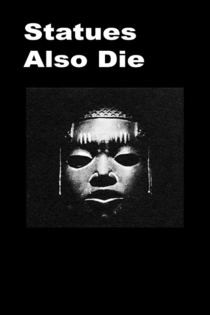
Lettre de Sibérie
Chris Marker
Georges Rouquier
One of Chris Marker's earliest documentaries (1957) and probably one of his best, the hour-long Letter From Siberia mixes new and found footage with inventive commentary, and is especially memorable for a passage in which footage is repeated while the offscreen commentary transforms its meaning with a different ideological interpretation. It is perhaps the earliest example we have of Marker's inimitable essayistic manner, hence an indispensable work.
Letter from Siberia
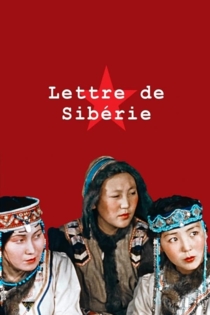
On vous parle de Prague : Le Deuxième Procès d'Artur London
Chris Marker
Yves Montand, Simone Signoret
Artur London was arrested in 1951 in a Stalinist purge, imprisoned and tortured for two years and forced to confess in the Slansky Trial, one of the last Stalinist "show trials" in Eastern Europe. The documentary explores some of the reasons for the controversy aroused by Costa-Gavras' The Confession, which had been accused of being anti-communist, and it highlights the political importance of filmmaking which, by its nature, is a fiction intended for the general public.
You Speak of Prague: The Second Trial of Artur London
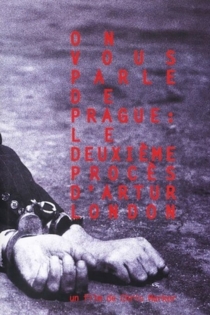
Tokyo-Ga
Wim Wenders
Yûharu Atsuta, Werner Herzog
German director Wim Wenders made this documentary in which he tries to explore the Tokyo that was depicted in the films of Yasujiro Ozu. When Wenders visits Tokyo for the first time, he finds a very different city, one with a booming fascination with technology that often clashes with the traditional elements of Japanese culture. Wenders also interviews Ozu's cinematographer, Yuharu Atsuta, and Chishu Ryu, an actor who frequently collaborated with Ozu.
Tokyo-Ga
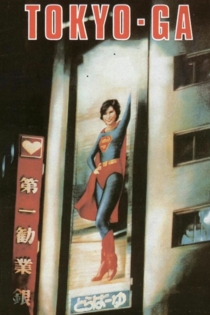
Chats perchés
Chris Marker
Bertrand Cantat, Dieudonné
Paris 2002. Yellow cats appear on the walls. Chris Marker is looking for these mysterious cats and captures with his camera the political and international events of these last two years (war in Iraq...).
The Case of the Grinning Cat
